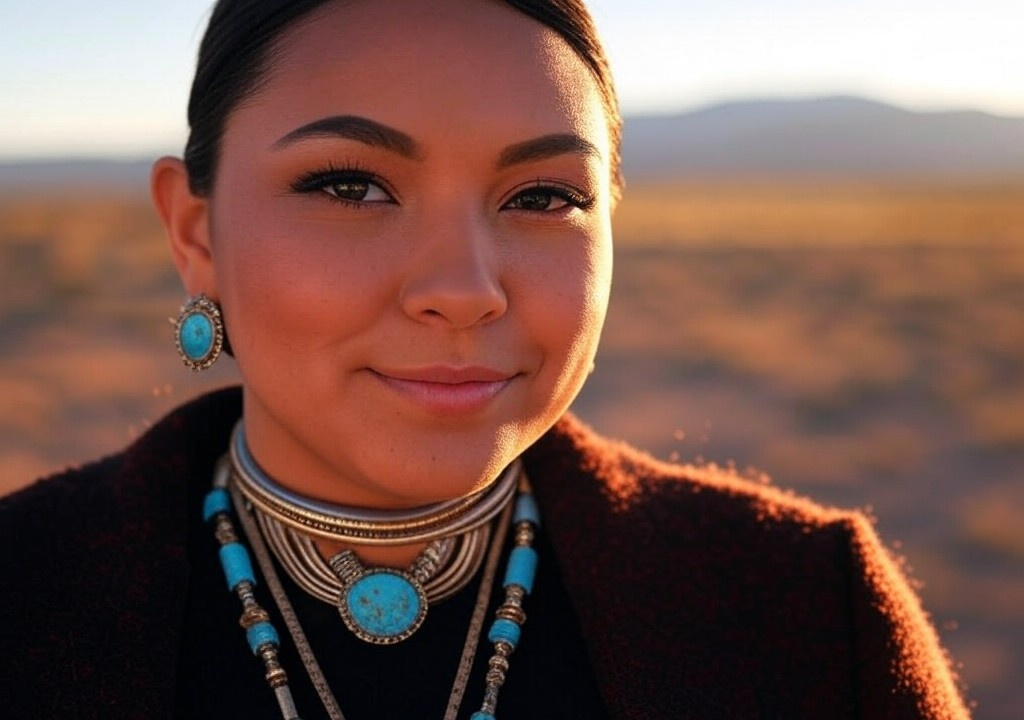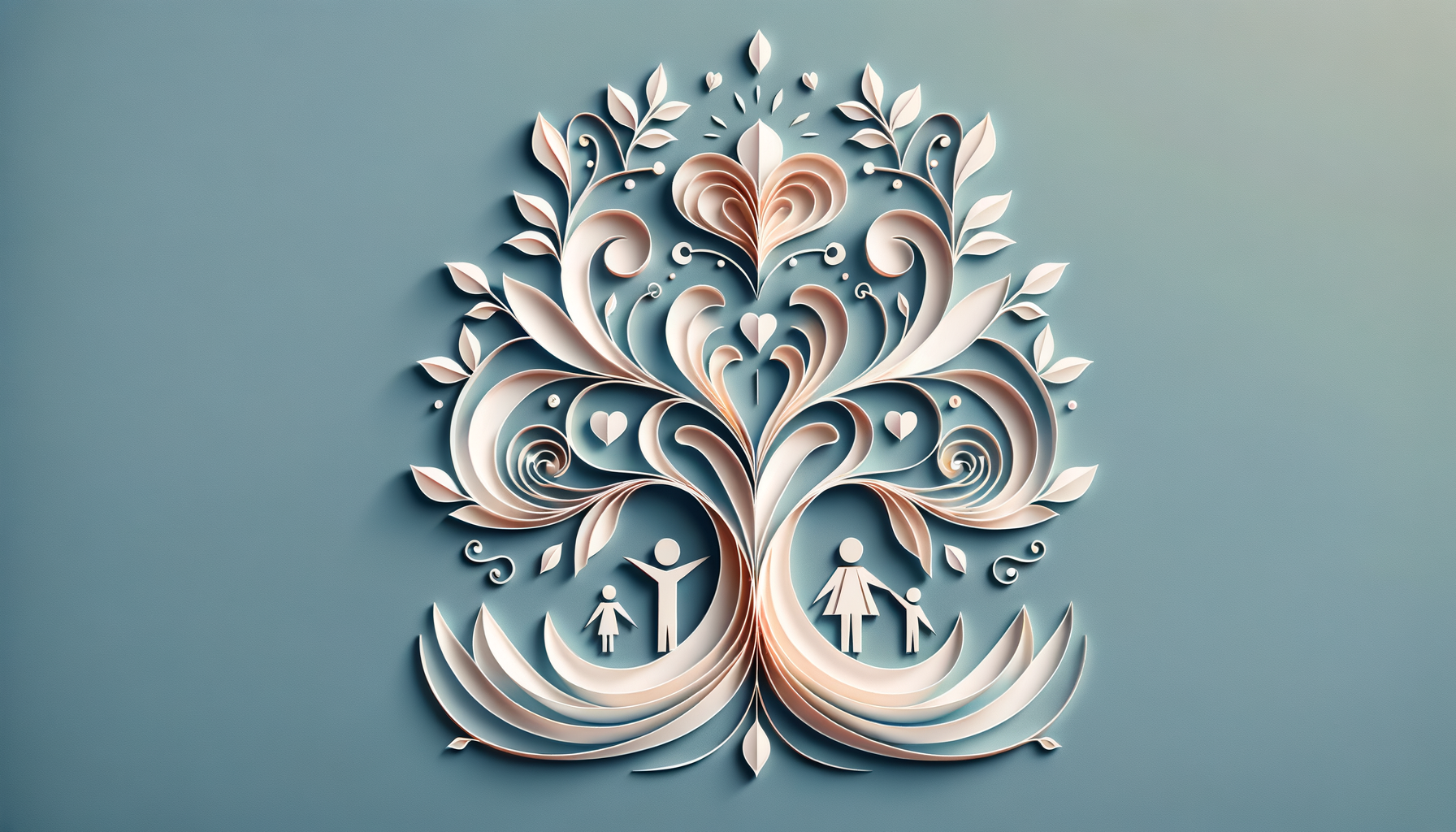The Stories in My Family
If you’ve ever sat through a Netflix series only to realize the plot twist was obvious all along, congratulations—you’d fit right in with my family. The twist? The lead character doesn’t just defy the odds; they redefine them. Pull up a chair (or a metaphorical digital one), and let me take you into the world of my family legends—the stories that made me who I am and, perhaps, hold a few lessons about love, relationships, and human connection.
What We Carry: Family Lore as Love Advice
In my family, storytelling is an Olympic sport. By the time I was eight, I could “yes, and” like a seasoned improv comedian and throw in punchlines sharper than grandma’s sewing needles. These weren’t just random tales, though. In Navajo culture, storytelling is how we teach—lessons don’t come with bullet points but with characters whose mistakes and triumphs are often more elaborate than the plot of Yellowstone.
One recurring story stars my great-aunt Lena, whose life philosophy was as bold as her lipstick—a blood-red shade she claimed was “made for only queens and warriors.” Lena once turned down a marriage proposal by pointing to the sky and saying, “If that man can catch the wind, then he can have my heart.” Don’t be fooled; she wasn’t being poetic. She wanted to see if the guy would actually chase the canyon gusts. Spoiler: he did, failed, and left with a bruised ego and a newfound respect for Lena’s standards.
Lena's story taught me early on that love isn’t about settling for effort that only seems grand but following through on promises—even whimsical ones. Think about it: how many modern romances end because someone felt the other wasn’t as invested as they claimed? Take it from Aunt Lena. If the wind-chaser’s energy in year two is more like “Netflix and whatever,” maybe it’s time to reevaluate.
Characters, Quirks, and What They Teach Us
Every family has That One Uncle (you know the type). Ours is Uncle Ben, who swears he wooed his wife, Dolly, by serenading her during a thunderstorm with a guitar. What he conveniently omits is that the “guitar” was a broken banjo, and he was so off-key the sheep practically fled the pasture in protest. But Dolly? She said yes. Not because of his musical (or lack thereof) talent but because he was willing to show up, rain and pitch-perfect pitch be damned.
It’s easy to romanticize effort when it’s grand and Instagram-ready—think flash mobs or Eiffel Tower proposals. But sometimes love looks like showing up after a long day, fixing a leaky faucet, or remembering how you take your coffee (half creamer, one sugar, thank you). Ben’s persistence, in all its storm-and-banjo chaos, taught me this timeless nugget: confidence melts hearts faster than perfection. Dolly didn’t need perfect notes. She needed sincerity.
Family Traditions: A Blueprint for Modern Relationships
One of the most grounding traditions in our family is the Blessingway ceremony. It’s a Navajo ritual that celebrates life transitions—birth, marriage, a new home—through songs and blessings. Picture it: cousins cracking jokes in the background while elders chant, weaving prayers like invisible safety nets. These ceremonies are equal parts sacred and joyful, reinforcing that life’s big moments are communal.
When I think about relationships, I see the same blueprint. We often treat modern dating and love as solitary goals. Swipe, match, like—it’s all about the self. My family’s traditions, however, taught me that love thrives when nurtured by community. Sure, your relationship is yours, but a strong network of support—friends who cheer you on, relatives who pass on wisdom—makes it durable. The first time my partner met my family, they grilled him harder than a summer barbecue. But by the end of the night, he was helping my uncle wash dishes, laughing like he’d always been part of the fold. That’s the kind of test you don’t swipe past.
“His Frybread’s Okay, I Guess” (aka Humor as a Love Strategy)
If you’ve ever made frybread, you’ll understand why my grandma’s recipe could be an EPA-classified secret. Light, golden, and dangerously addictive, frybread is a staple at every family gathering. Growing up, I noticed the way my grandparents teased each other over it. Grandpa claimed hers was “too crunchy this year,” and she’d deadpan, “Eat it anyway, you old goat.” This banter wasn’t nagging—it spoke of decades of inside jokes and affection so baked-in you couldn’t distinguish one from the other.
Humor, I learned, is a love language. You’d be surprised how many conflicts a well-timed joke or silly moment can deflate. But it’s also about knowing your partner’s humor and honoring it. Not every relationship needs sitcom-level banter, but every relationship thrives when laughter finds its way in (even when your frybread craters like the Grand Canyon).
What Family Stories and Dating Have in Common
So, why does this all matter? Because dating and relationships aren’t just two people filling out a compatibility matrix—thanks, dating apps—they’re about stories.
- Know Your Story: My family’s tales taught me that self-awareness is vital. Who are you bringing into a relationship? Or, to borrow from Aunt Lena, are you the kind of person willing to chase the wind?
- Share the Awkward Chapters: Uncle Ben didn’t hide his off-pitch banjo serenade, and neither should you downplay the quirks that make you, well, you. Vulnerability isn’t the shortcut to love, but it carves the path.
- Build a Communal Plotline: Bring your partner into your world, and let them bring you into theirs. Love isn’t just two hearts; it’s a network of connections weaving something stronger than either of you alone.
Conclusion: Love, Like Life, Is Storytelling
Every family has these larger-than-life characters, but what makes these stories special is the heart underneath. Aunt Lena wasn’t just demanding; she was showing me the importance of standards. Uncle Ben’s off-key storm serenade wasn’t only comedic gold; it was a lesson in persistence. My grandparents’ frybread wars weren’t just funny—they were about how love is lived in the everyday moments.
When it comes to love, we’re not just spinning tales for the fun of it. We’re weaving lessons, memories, and blueprints for the kind of connections worth keeping. So, whether you’re building a relationship or strengthening one, remember this: the plot twists, the messy chapters, and the heartfelt endings—all of it matters.
Now excuse me while I go perfect my frybread again. Turns out, love isn’t the only thing that takes practice.




















